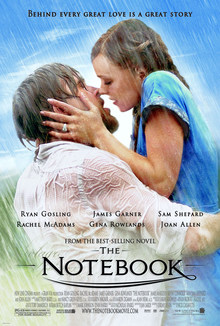The Eternal Puzzle: Can Love Last?
The answer to this age-old question is both a yes and a no.
Suggested reading: CAN LOVE LAST by Stephen A. Mitchell

Few cinematic narratives attempt to trace love across the vast expanse of human life. Yet, the quandary persists—why must it be so intricate? Because both life and love, fleeting and finite, are constrained by time. The currents of impermanence shape both ebb and flow.
While the youthful heart perceives life and love through the immediacy of the present—”I’m 21 today; the world is mine, and what could possibly falter?”—the seasoned mind poses harder questions: “How long will this last? What is the purpose of it all?” Time, with its inevitable changes, reshapes everything. Death, taxes, and transformation are the only constants.
Romantic love, in particular, is transitional by design, an early chapter that seeks fulfillment in mature, enduring affection. Love can persist, but both the relationship and its participants inevitably transform as the years pass.
When love falters and the bond fractures—whether from abuse or irreconcilable differences—separation may become the most prudent course. Often, children suffer more from witnessing a crumbling relationship than they would through the clarity of divorce.
This distinction matters because romantic love frequently initiates the bond between partners, bringing with it joy and simplicity. Yet, as romance wanes, many couples experience trepidation, bewildered by love’s apparent evaporation. What once seemed effortless and enchanting now feels precarious. How could such elation fade? Where did it go, and why?

The dissolution of romantic love occurs as the mirage of perfection dissolves, revealing the unvarnished reality of the partner’s true self. Additionally, life’s burdens—child-rearing, financial strains, creeping monotony, unveiled secrets, rival distractions, and health setbacks—amplify the strain on love’s fragile structure. Almost every original expectation evolves or erodes under pressure, leaving the relationship exposed.
During these vulnerable phases, couples often require the support of more experienced individuals or couples to navigate the transition toward deeper affection. Without guidance, relationships may dissolve, leaving children to endure the aftermath of separation. While divorce may sometimes offer relief, it is not necessarily the best option.
Historically, marriages often transcended romantic love, functioning as economic arrangements between families. In caste-based societies, for instance, marriage served to preserve social purity and lineage. Love, if it emerged at all, was seen as an ancillary benefit—appreciated but non-essential, with other accommodations made to sustain the union.

Though the adage claims that love makes the world go ’round, it leaves unclear which type of love it refers to. Many thrive without amorous, transcendent, or caring love and without being sustained by a monogamous connection. Humans are very adaptable creatures. While romantic love might not be universal, the human drive for companionship—whether expressed through marriage, polyamory, or friendship—certainly seems most pervasive.
However, in contemporary times, even within collectivist cultures such as China, the inclination to marry without real love is dwindling. Today’s couples seek emotional fulfillment alongside social companionship, making love a precondition for marriage in ways that were not always prioritized in previous generations.
But can love endure the ceaseless march of time? Change, it seems, is unavoidable. Yet love’s survival isn’t a passive process subject only to the whims of fate. Change need not be random; it can be deliberate. Human beings shape their futures through mindful choices, participating actively in the vitality of their relationships.

The magic of love lies in the interplay between enchantment and surrender, explains Octavio Paz in his little book The Double Flame. Enchantment draws us in with its initial spark, while surrender keeps us invested by creating a deep, emotional connection. Striking a balance between these two elements is the key to nurturing a love that remains passionate and enduring over time. Relationships are a beautiful dance between enchantment and surrender. If one comes to take the other for granted, it’s surely over.
True love—not a mere theological abstract but a lived experience over time—is delicate. Its longevity depends on the down-to-earth acts of erotic passion and intentional care. These recurring events are what folks often envision as real love. When real love is experienced as good enough – not even perfect, the bonded relationship should last and the couple may one day say it was true love.
Without such effort, love risks disintegrating under the weight of life’s inevitable shifts. Thus, for love to endure, it must be nourished continually, embraced not as a static emotion or stifling commitment but as a dynamic force, adapting and growing through every phase of life.
Next, ABCs of Love –
5. Triangular Theory of Love
The Triangular Theory of Love is not some kind of tricked-out Pythagorean concept. In spite of its hideous name, the ‘theory’ is a very appealing way of visualizing the conceptual components of intimate relationships.